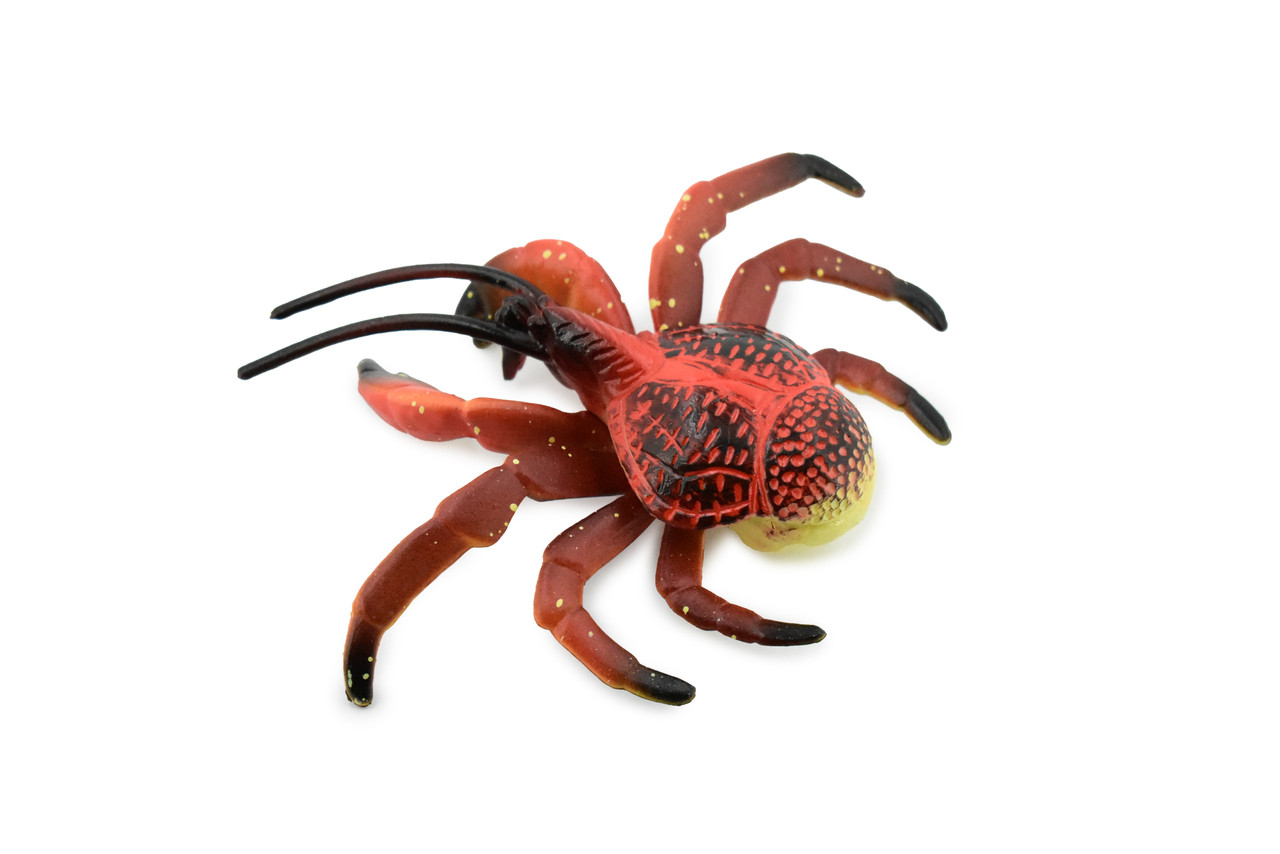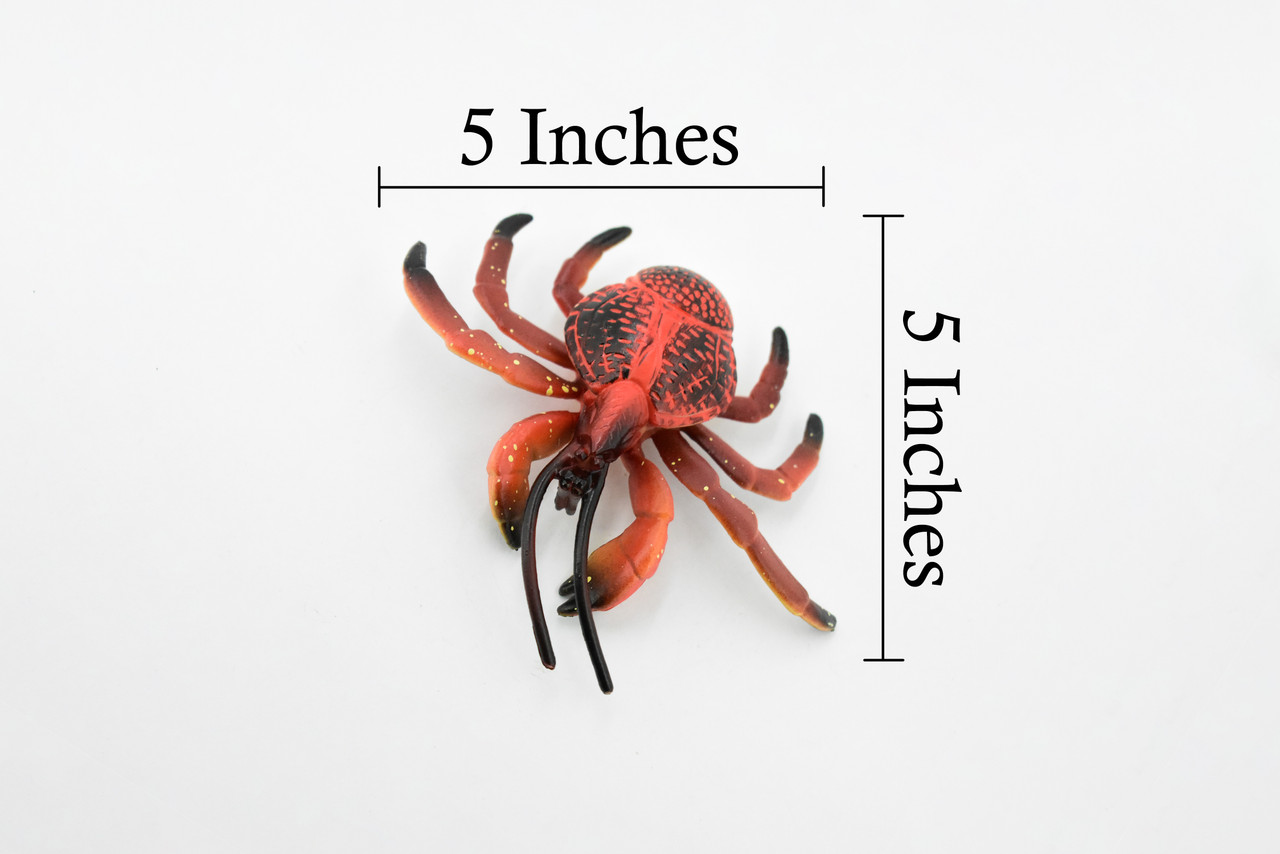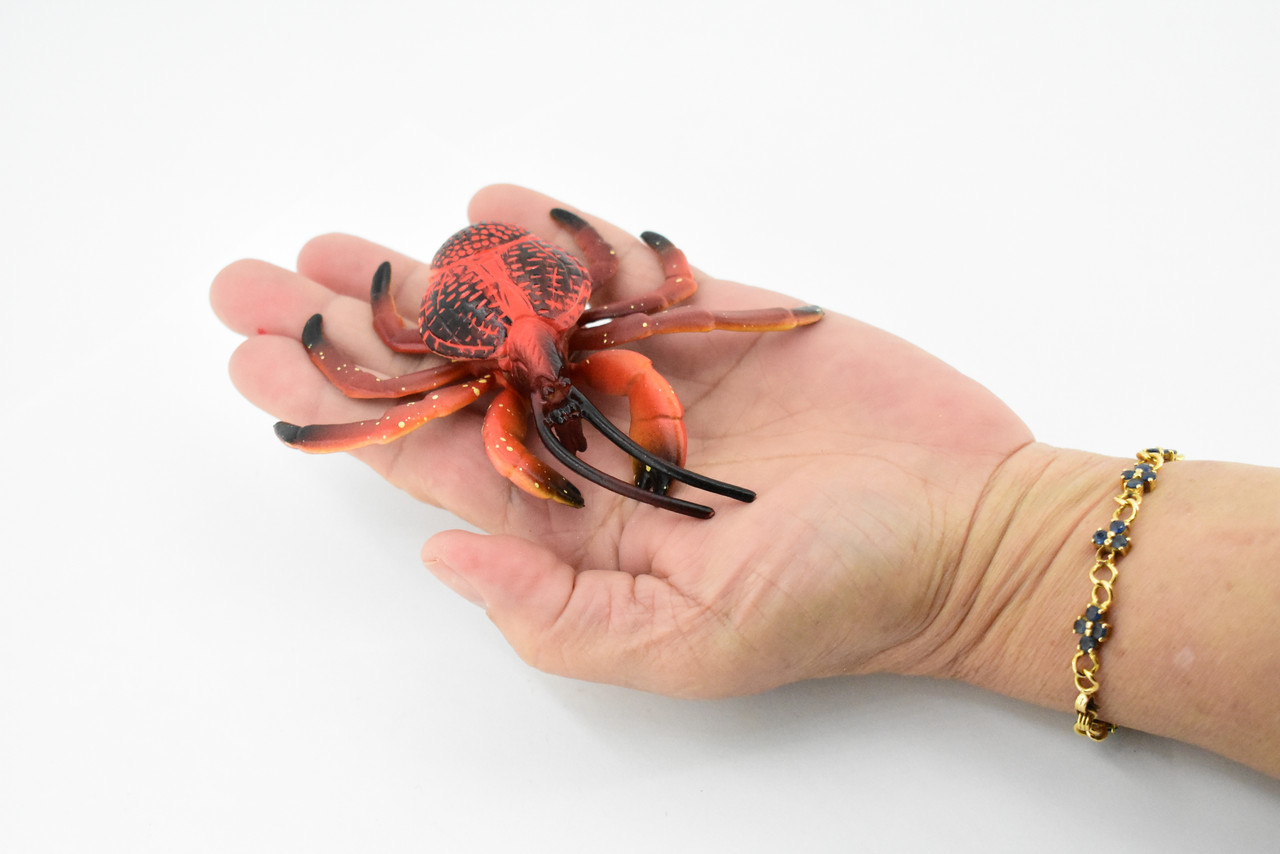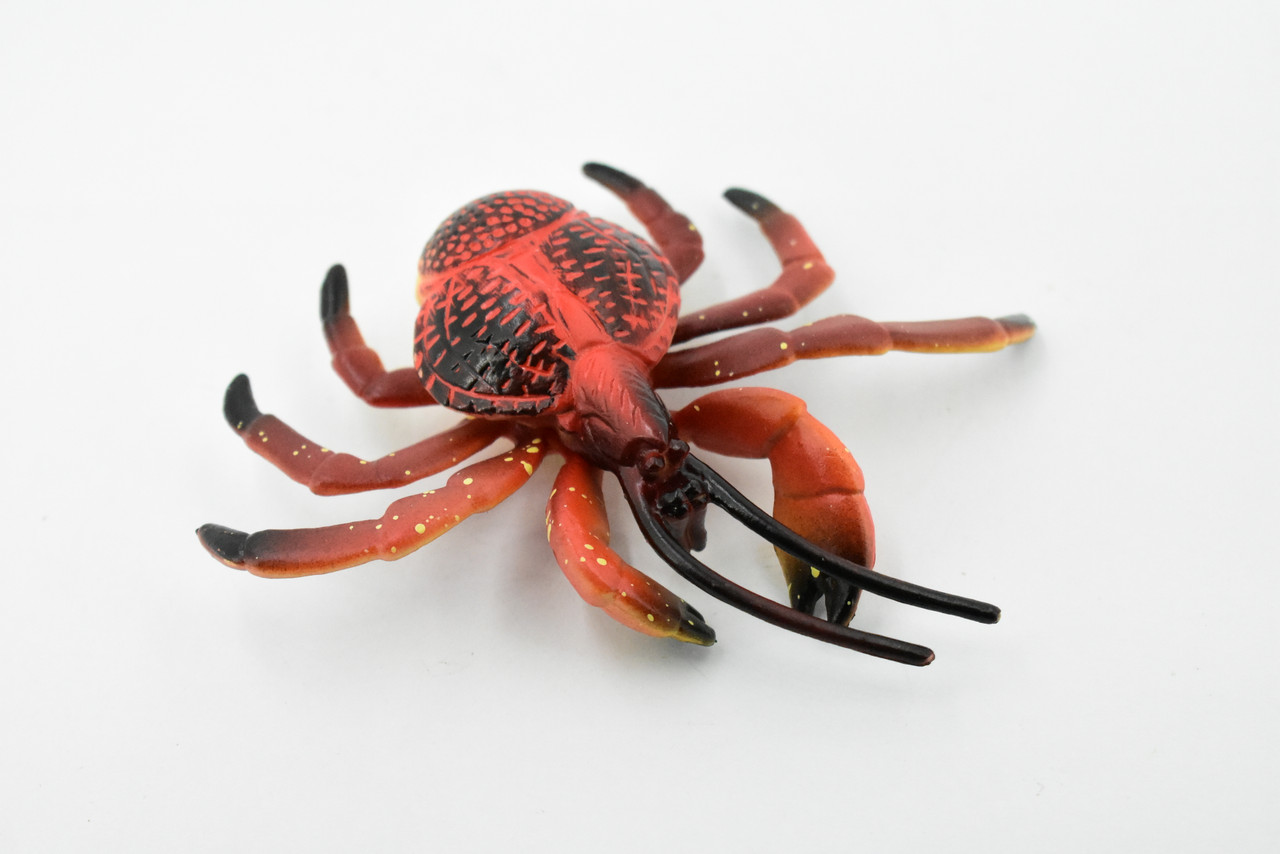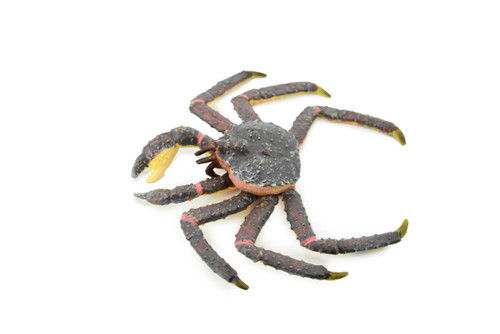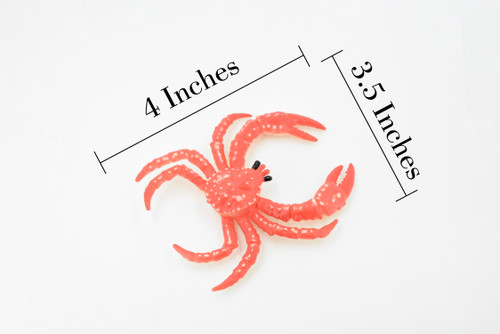Product Description
The coconut crab (Birgus latro) is a species of terrestrial hermit crab, also known as the robber crab or palm thief. It is the largest terrestrial arthropod in the world, with a weight of up to 4.1 kg (9 lb). It can grow to up to 1 m (3 ft 3 in) in width from the tip of one leg to the tip of another. It is found on islands across the Indian Ocean, and parts of the Pacific Ocean as far east as the Gambier Islands, Pitcairn Islands and Caroline Island, similar to the distribution of the coconut palm; it has been extirpated from most areas with a significant human population, including mainland Australia and Madagascar. Coconut crabs also live off the coast of Africa near Zanzibar.
The coconut crab is the only species of the genus Birgus, and is related to the other terrestrial hermit crabs of the genus Coenobita. It shows a number of adaptations to life on land. Juvenile coconut crabs use empty gastropod shells for protection like other hermit crabs, but the adults develop a tough exoskeleton on their abdomens and stop carrying a shell. Coconut crabs have organs known as branchiostegal lungs, which they use for breathing instead of their vestigial gills. After the juvenile stage, they will drown if immersed in water for too long. They have an acute sense of smell which they use to find potential food sources, and which has developed convergently with that of insects.
Adult coconut crabs feed primarily on fleshy fruits, nuts, seeds, and the pith of fallen trees, but they will eat carrion and other organic matter opportunistically. Anything left unattended on the ground is a potential source of food, which they will investigate and may carry away – thereby getting the alternative name of "robber crab". The species is popularly associated with the coconut palm, yet coconuts are not a significant part of its diet. Although it lives in a burrow, the crab has been filmed climbing coconut and pandanus trees. No film shows a crab selectively picking coconut fruit, though they might dislodge ripe fruit that otherwise would fall naturally. Climbing is an immediate escape route (if too far from the burrow) to avoid predation by large sea birds (when young) or by humans, or cannibalism (at any age) by bigger, older crabs.
Collectible Wildlife Gifts is the market leader in providing high quality, realistic toys of all types! Every one of our items is heavily inspected for quality craftsmanship and authenticity. Our products make great gifts for your family and friends! Additionally, our lifelike animal figurines and plush make for great displays and educational sets. We are happy to serve our wide range of clientele from parents to educators, gift shop owners and many more!
Our team works hard to ensure you get a great toy. All products from CWG are checked for quality to ensure you receive the order in perfect condition.
From plush sharks to educational animal growths cycle we offer the perfect toy or gift for any occasion. Our products have been ordered by educational groups, aquariums, zoos, and more.
Great customer service is guaranteed when you order from Collectible Wildlife Gifts, we want you to love your toy and have a simple ordering process, we are happy to assist with inquiries!

